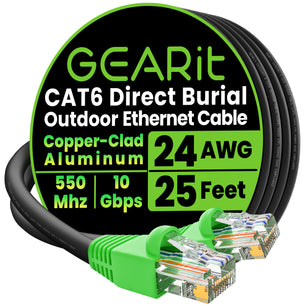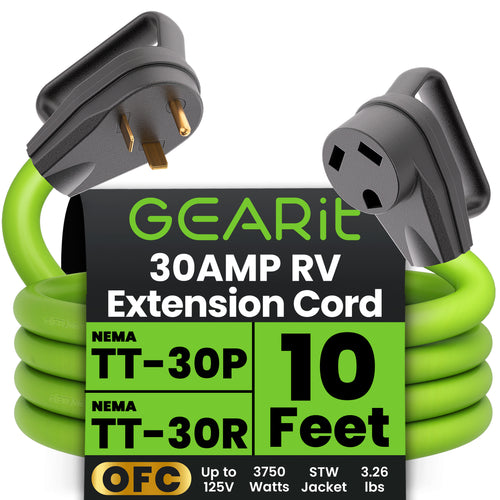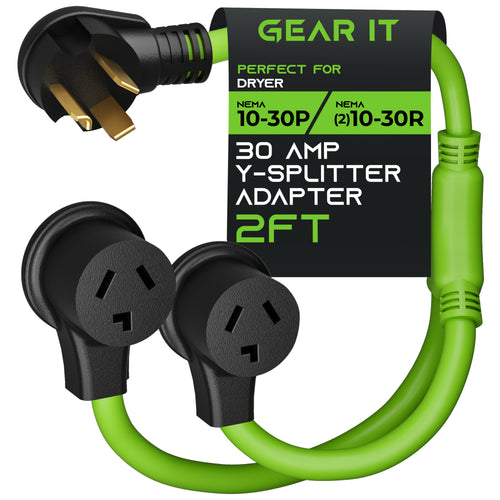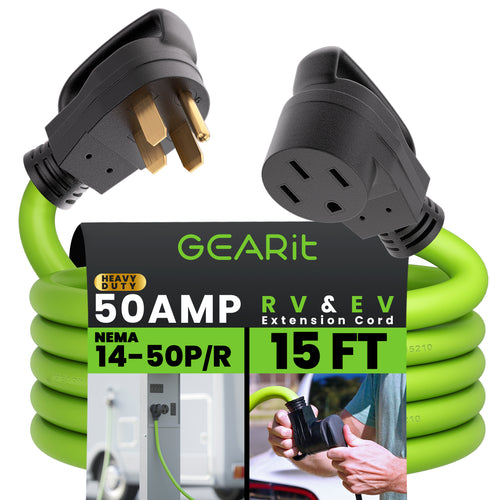Choosing the right extension cord for charging your electric vehicle is essential for safety and efficiency. Look for cords with sufficient amperage, durable materials, and proper connectors to prevent overheating and ensure a reliable charge.
Power your EV safely with GearIT’s high-quality extension cords:
Stay safe, charge efficiently, and keep your EV ready to roll—shop GearIT now for reliable extension cords! ⚡🚗
→ GearIT 30-Amp Generator Extension Cord (NEMA TT-30P to TT-30R)
→ GearIT 50-Amp Generator Extension Cord (NEMA 14-50P to 14-50R)

In the age of electric vehicles (EVs), one of the most common questions among new owners is, "What extension cords are safe to use to charge my electric vehicle?" It's a valid concern, considering the power demands and potential risks associated with charging such vehicles. Let's dive into this topic to ensure you make the safest choice for your EV charging needs.
Understanding EV Charging Requirements
Before delving into EV extension cords, it's crucial to understand the charging requirements of your electric vehicle. EV chargers come in various power levels, typically categorized as Level 1, Level 2, and Level 3 (DC fast charging). Level 1 chargers use a standard 120-volt household outlet and offer the slowest charging speeds, while Level 2 chargers require a 240-volt outlet and provide faster charging. Level 3 chargers, often found at public charging stations, offer rapid charging capabilities but require specialized equipment.
The Risks of Using Extension Cords
While extension cords might seem like a convenient solution for reaching your EV from a power source, using the wrong type of cord can pose significant safety hazards. Extension cords with insufficient gauge (thickness) or length can overheat, leading to potential fires, damage to your vehicle's charging equipment, or even electric shock.
Choosing the Right Extension Cord
When selecting an extension cord for charging your electric vehicle, there are several factors to consider to ensure safety and efficiency:
Recommended Extension Cord Types
For Level 1 charging, a high-quality, 12-gauge, outdoor-rated extension cord with a length suitable for your needs should suffice. However, for Level 2 charging, it's best to avoid extension cords altogether whenever possible due to the higher power requirements. Instead, consider installing a dedicated 240-volt outlet near your parking space for safer and more efficient charging.
Using Adapters for Versatile Charging
Adapters play a crucial role in ensuring compatibility between your EV's charging cable and various outlets. For instance, if you're visiting a friend's house and they only have a standard household outlet available, you can use an adapter to connect your EV's charging cable to it.
Similarly, when charging at a public charging station that offers different types of connectors, adapters can allow you to use your EV's cable with those outlets. This versatility can significantly expand your charging options, providing convenience and peace of mind wherever you go.
Conclusion
When selecting extension cords and adapters for your EV charging setup, it's essential to consider factors such as compatibility, safety, and durability. By selecting a heavy-duty cord with the appropriate gauge, length, and certifications, you can charge your EV with confidence, knowing that you're minimizing risks and maximizing performance. Check out GearIT's EV extension cords and adapters that are specifically designed for EV charging applications and have undergone rigorous testing to ensure they meet safety standards.



























































